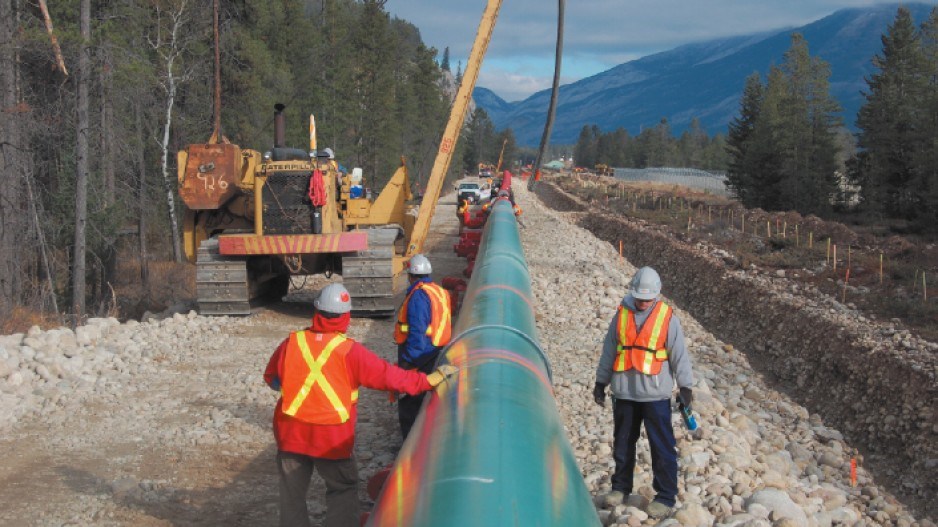One of those conditions will require the company, Kinder Morgan Inc. (NYSE:KMI), to develop a carbon offset plan to cancel out about 1 million tonnes of CO2, which is what the construction of a second pipeline is estimated to generate.
It’s the first time the NEB has required a major project to include an offset program.
The prices for carbon offsets vary widely around the world, so it’s difficult to calculate how much the carbon offsets program will add to the project’s costs.
If B.C.’s own carbon pricing is used, it could amount to $30 million, since B.C.’s carbon tax prices carbon at $30 per tonne.
The Trans Mountain pipeline, which runs from Edmonton to Burnaby, was built 60 years ago. The plan is to twin it with a new secondary line, which would nearly triple its current capacity from 300,000 barrels per day (bpd) to 890,000 bpd.
At an official announcement May 19, the NEB acknowledged that the twinning project will generate a “significant” amount of greenhouse gases and that increased oil tanker traffic will likely have “significant adverse effects” on resident killer whales.
But it said those concerns are offset by the overall benefit the project will have for the general Canadian public.
“Taking into account all the evidence, considering all relevant factors, and given that there are considerable benefits nationally, regionally and to some degree locally, the board found that the benefits of the project would outweigh the residual burdens,” said NEB chief environment office Robert Steedman.
The final decision on whether the project can move forward rests with the federal government. But it also still has to pass a court-ordered provincial environmental review, and B.C. still is not supporting the project.
B.C. Environment Minister Mary Polak said B.C. will support the project only if it meets all the five conditions the province established for all heavy oil pipelines – something the company hasn’t yet done. Those conditions include B.C. getting “its fair share” of economic benefits from the project.Polak said significant progress has been made by the company towards meeting all five conditions, but added “we are not there yet.”
“We’re not in a position to consider support for any heavy oil pipeline in B.C.”
One of the other conditions is ensuring First Nations have been properly consulted – something that the new federal panel stuck earlier this week may help address.
Between now and the end of this year, a new three-person panel announced earlier this week by the federal government will travel throughout B.C. to hear from First Nations and communities to get feedback.
The new panel includes former Tsawwassen First Nation chief Kim Baird, former Yukon premier Tony Penikett, and Annette Trimbee, a former deputy minister for the Government of Alberta.
It is possible that, in addition to the NEB’s 157 conditions, the new three-person panel could also recommend their own additional conditions. The new consultation process will also likely push back the start date for construction.
“It’s always disappointing to see goalposts moved midway through an approval process,” said Maureen Kirkbride, the BC Chamber of Commerce’s new interim CEO
“We urge the federal government to honour the original approval timelines so as to avoid the additional impact of project delays.”
Trans Mountain is hoping to start construction in 2017 with an in-service date of 2019.



